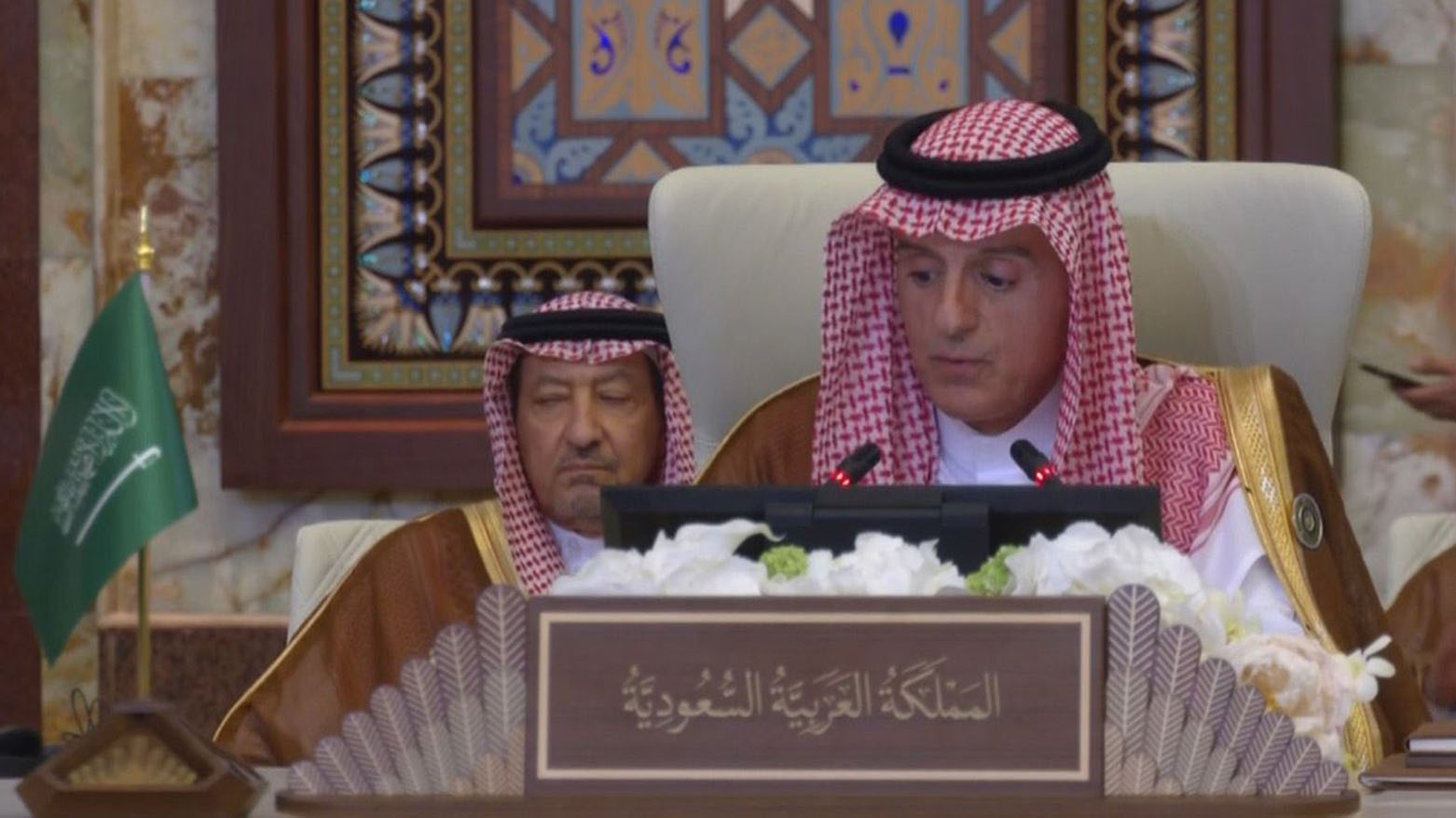Saudi Arabia Welcomes Trump’s Sanctions Relief on Syria at Arab Summit in Baghdad
Adel al-Jubeir, the Foreign Minister of Saudi Arabia and the head of the Saudi delegation, delivered the remarks in a speech that praised both the Iraqi government for hosting the summit and President Donald Trump for initiating a shift in U.S. policy.

By Kamaran Aziz
ERBIL (Kurdistan24) – Saudi Arabia has publicly commended the U.S. President’s recent decision to lift sanctions on Syria, hailing it as a crucial step toward reconstruction and regional stabilization. The statement came during the Arab League Summit currently underway in Baghdad, where high-level officials from across the Arab world have gathered to address some of the region’s most pressing crises.
Adel al-Jubeir, the Foreign Minister of Saudi Arabia and the head of the Saudi delegation, delivered the remarks in a speech that praised both the Iraqi government for hosting the summit and President Donald Trump for initiating a shift in U.S. policy.
“The Kingdom of Saudi Arabia renews its condemnation of Zionist aggression against Syrian territories and commends the decision by the U.S. President to lift sanctions on Syria and provide an opportunity for reconstruction and recovery,” Jubeir stated.
The remarks mark a notable moment of alignment between Washington and Riyadh on the Syrian file, long a source of geopolitical contention. The lifting of sanctions signals a potential reentry of Syria into the regional and international economic system after years of isolation under the Caesar Act and other punitive measures imposed by the U.S.
Saudi Arabia’s backing of this move adds weight to a growing regional consensus advocating for Syria’s reintegration and reconstruction—albeit amid continued concern over Iranian influence and unresolved questions about political transition.
Jubeir also used the platform to reaffirm Saudi Arabia’s firm rejection of the forced displacement of Palestinians from the Gaza Strip and reiterated the Kingdom’s long-standing opposition to Israeli military actions in both Gaza and Syria.
“The Kingdom of Saudi Arabia reiterates its rejection of any attempts to forcibly displace the Palestinian people from the Gaza Strip,” he said, calling attention to the humanitarian toll of ongoing hostilities.
The Saudi envoy stressed the importance of regional diplomacy and intra-Arab solidarity in resolving crises. “We emphasize the importance of continuing dialogue in Sudan to end the conflict and preserve its sovereignty and unity,” Jubeir added, pointing to another area of active instability.
In his closing remarks, Jubeir also highlighted the strategic necessity of securing maritime navigation routes—a nod to recent tensions in the Red Sea and Gulf waters.
“It is essential to safeguard the security of maritime corridors and ensure the continuity of global navigation,” he said, underscoring Saudi Arabia’s concern over the protection of global trade and energy supply chains.
The Arab League Summit in Baghdad has provided a rare convergence of regional voices, reflecting a growing urgency to address interconnected conflicts in Gaza, Syria, Sudan, and beyond. Saudi Arabia’s endorsement of the U.S. President’s sanctions relief on Syria may well represent a turning point in regional diplomacy and the long path toward Syrian reconstruction.
